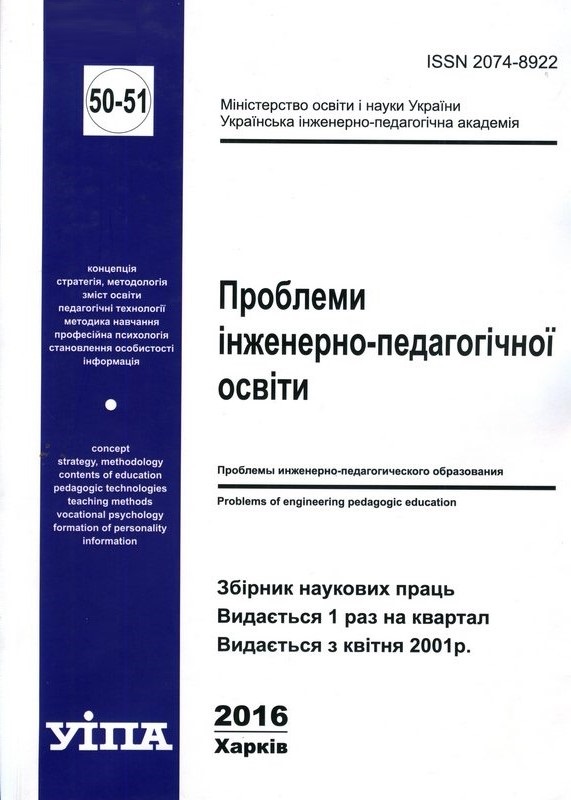Анотація
The article considers the use of allegoric tales, covering parables, fairy tales, myths, legends,
fantasy stories, moral dilemmas, as an effective means of students’ moral education during studying a
foreign language. The social and psychological factors of popularity of allegoric stories among adults have been analyzed. The place and role of allegoric stories in the youth’s spiritual and moral development have been determined. It is claimed that allegoric tales help implement pedagogical
correction of a young man’s social behavior, offer role models, promote the development of positive
interpersonal relationships, social skills, relieve stress, teach to resolve conflicts. The features of the
process of morality assimilation, whose main components include emotionally accepted knowledge of
moral principles, moral evaluation,moral example of actions, moral choice and behavior in practiceare
pointed out. The criteria for selecting allegoric tales are determined, forms and methods of students’
moral development through the use of allegoric tales when learning a foreign language are provided,
some of them are specified: the method of educational metamorphoses, philosophical dialogue, solving
ethical dilemmas, theatre forum.


